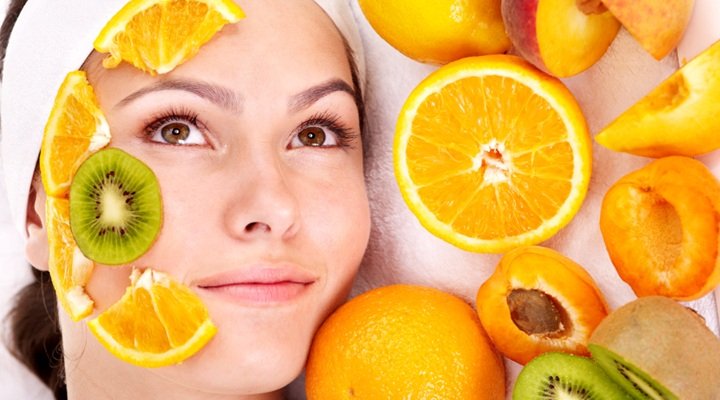10 Science-Backed Fruits That Fight Aging

The quest for youthfulness is as old as time, but modern science is increasingly looking to nature’s pantry for powerful, sustainable solutions. While no single food is a "fountain of youth," a diet rich in specific, nutrient-dense fruits can profoundly impact the aging process from the inside out. Aging, at its core, is driven by oxidative stress, chronic inflammation, and cellular damage. The compounds found in these ten fruits directly combat these mechanisms, offering a delicious strategy for preserving vitality, cognitive function, and radiant skin.
Here are 10 science-backed fruits that are truly fighting the battle against time for ageing
1. Blueberries: The Antioxidant Powerhouse
Tiny but mighty, blueberries are the undisputed champions of the antioxidant world. Their deep blue hue comes from anthocyanins, potent flavonoids that have been shown to protect skin cells from oxidative damage caused by UV exposure and environmental pollutants. A study published in the Journal of Agricultural and Food Chemistry found that blueberries' antioxidants can improve cell-to-cell communication and increase the production of compounds that naturally protect the skin. Furthermore, research suggests they can enhance memory and delay age-related cognitive decline, making them a true brain food.
2. Avocado: The Hydration Shield
Often mistaken for a vegetable, the avocado is a unique fruit packed with monounsaturated fats. These healthy fats are crucial for maintaining skin’s moisture levels and lipid barrier, which keeps skin plump and resilient. They also enhance the absorption of fat-soluble antioxidants from other foods. Avocados are rich in Vitamin E, a key nutrient that protects against photodamage, and glutathione, the body's "master antioxidant," which is known to decrease with age.
3. Pomegranate: The Cellular Protector
Pomegranates contain a powerful compound called punicalagin. This unique antioxidant is responsible for most of the fruit's anti-aging prowess, as it has been shown to help preserve collagen—the structural protein that keeps skin firm and smooth. Even more impressively, research indicates that punicalagins can improve the mitochondria's ability to recycle and renew, a process essential for energy production and slowing cellular aging.
4. Citrus Fruits (Oranges, Grapefruits, Lemons): The Collagen Builders
Citrus fruits are celebrated for their high Vitamin C content, and for good reason. Vitamin C is a non-negotiable co-factor in the body's production of collagen. Without it, collagen synthesis falters, leading to wrinkles and sagging skin. A review in the American Journal of Clinical Nutrition linked higher vitamin C intake to a lower likelihood of wrinkled skin and age-related skin dryness. The bioflavonoids in citrus also strengthen capillaries, improving skin circulation and delivering vital nutrients.
5. Papaya: The Gentle Exfoliator
This tropical delight is a multi-tasking marvel for skin health. It is loaded with Vitamin C, A, and several B vitamins. More uniquely, papaya contains the enzyme papain. Papain is a natural exfoliant that gently sloughs off dead skin cells, promoting a brighter complexion and allowing better penetration of other skincare products. Its powerful antioxidants like lycopene further protect the skin from the damaging effects of the sun.
6. Watermelon: The Hydration & Protection Duo
Composed of over 90% water, watermelon is a fantastic hydrator, which is fundamental for keeping skin cells plump and smoothing out fine lines. Its real anti-aging superpower, however, lies in lycopene. This carotenoid antioxidant gives watermelon its red color and has been shown to provide protection against UV-induced skin damage. Interestingly, the lycopene from watermelon may be more bioavailable than from tomatoes.
7. Kiwifruit: The DNA Defender
Don’t let its small size fool you. Kiwifruit is one of the most nutrient-dense fruits available. It is exceptionally high in Vitamin C, outperforming oranges per gram. It is also a great source of Vitamin E, creating a powerful antioxidant duo. Furthermore, kiwifruit contains a unique compound called actinidin, an enzyme that aids digestion. Proper digestion and nutrient absorption are critical as we age, ensuring our bodies get the building blocks they need for repair and maintenance.
8. Grapes (especially red/purple): The Cellular Renewal Activators
The humble grape, particularly its skin and seeds, is rich in resveratrol. This celebrated polyphenol has been extensively studied for its ability to activate longevity genes called sirtuins. Research in animal models has shown that resveratrol can mimic the effects of caloric restriction—a known method for extending lifespan. It also offers potent anti-inflammatory and antioxidant protection for the cardiovascular system and skin.
9. Lychee: The Polyphenol Powerhouse
This exotic fruit is a hidden gem in the anti-aging arsenal. Lychee is packed with oligonol, a polyphenol with strong antioxidant and anti-inflammatory properties. Studies suggest that oligonol can improve skin elasticity by reducing the breakdown of collagen and fighting the inflammation that accelerates aging. It also promotes better blood flow, enhancing nutrient delivery to skin cells.
10. Apples: The Fiber & Flavonoid Foundation
"An apple a day" holds profound truth. Apples are a fantastic source of soluble fiber, which feeds the beneficial gut bacteria linked to reduced systemic inflammation—a key driver of aging. The skin of the apple is particularly rich in quercetin, a flavonoid that stabilizes cell membranes and protects against UVB-induced damage. The pectin in apples also helps maintain a healthy gut-skin axis, which is crucial for a clear, youthful complexion.
The Final Bite: A Symphony of Youth
The most powerful approach to anti-aging is not to hyper-focus on a single "superfruit" but to incorporate a vibrant variety into your diet. Each fruit offers a unique symphony of vitamins, minerals, antioxidants, and enzymes that work synergistically to protect your cells, repair damage, and promote vitality. By making your fruit bowl a colorful, diverse, and regular part of your life, you are not just eating for taste—you are nourishing your body with the best that science and nature have to offer in the pursuit of a longer, healthier, and more radiant life.



